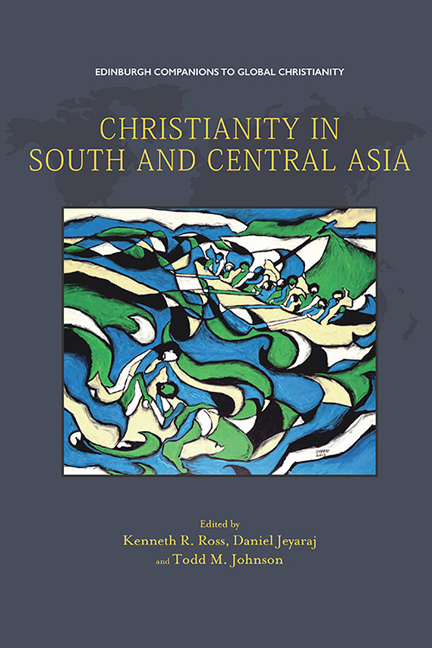Pentecostals and Charismatics
Published online by Cambridge University Press: 30 April 2020
Summary
The staggering diversity that marks South and Central Asia is reflected in the various expressions of the church that have emerged from the earliest years of the Christian era but that are manifested to an even greater degree in the various movements broadly categorised as Pentecostal/Charismatic that have arisen more recently. The limitations of this descriptive essay include, firstly, the sheer scope of the task, given not only the massive numbers of peoples, but also the fact that they comprise thousands of sub-cultures, ethnic and racial sub-groups, tribes, religious sects, castes, classes and other social groupings scattered all across the various countries within this region. A second constraint is posed by the dearth of available resources with regard to most countries within the region and the difficulty in accessing them. The limited amount of published material thus means that the observations focus more on countries for which data are more readily available. Perhaps the most formidable challenge has to do with the nature of the confessional stream in focus. Given that it is not a monolithic church ‘tradition’ with a centralised polity or unified organisation, attempts to describe Pentecostal/Charismatic movements anywhere in the world routinely face this challenge. The heterogeneous character of Pentecostal/Charismatic movements in South and Central Asia is further intensified due to the multiple and highly complex political, social, ethnic and cultural factors at play. Within view is a wide range of Christ-centred ‘Spirit’ movements, with disparate beliefs, practices and degrees of organisation, which we characterise as `Pentecostal/Charismatic’ based on a few key features or family resemblances.
Beginnings
The earliest record of a modern Pentecostal outpouring in this region is of its occurrence in India. The Pentecostal movement in India traces its roots to a revival that broke out in May 1860 in the Tirunelveli district of Tamil Nadu in South India in the ministry of a Tamil Anglican catechist named John Christian Aroolappen. The revival was accompanied by various spiritual manifestations, including visions, prophecy, healing, unknown tongues and other Charismatic gifts, as well as intense conviction of sin, conversion of unbelievers, concern for the poor, and people falling down under spiritual power.
- Type
- Chapter
- Information
- Christianity in South and Central Asia , pp. 287 - 300Publisher: Edinburgh University PressPrint publication year: 2019



